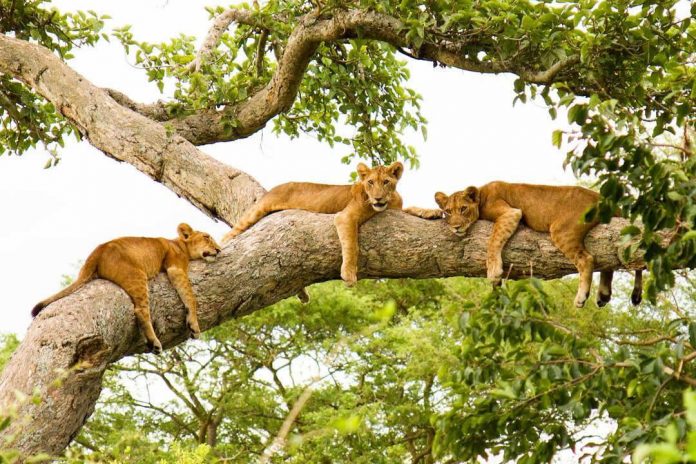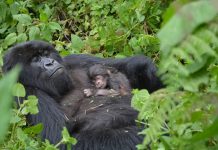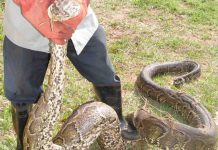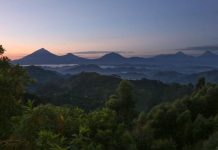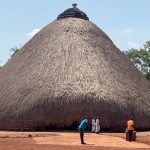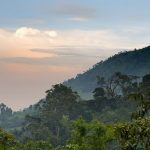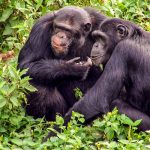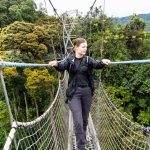There are only two populations of tree-climbing lions in the whole world and fortunately, Uganda prides itself in holding one of these! The Ishasha region in Queen Elizabeth National Park is the habitat of internationally-famed tree-climbing lions. The Ishasha region is located approximately 432 kilometers southwest of the capital city of Uganda – Kampala. The region is located adjacent to Uganda’s border with the Democratic Republic of the Congo.
Ishasha lies on the far most southwestern rim of Queen Elizabeth National Park, which is Uganda’s most toured national park. The landscape of the Ishasha region significantly differs from the other parts of the park.
The Ishasha region in Queen Elizabeth National Park is the habitat of internationally-famed tree-climbing lions. The Ishasha region is located approximately 432 kilometers southwest of the capital city of Uganda – Kampala. The region is located adjacent to Uganda’s border with the Democratic Republic of the Congo.
Ishasha lies on the far most southwestern rim of Queen Elizabeth National Park, which is Uganda’s most toured national park. The landscape of the Ishasha region significantly differs from the other parts of Queen Elizabeth National Park.
Seeing the Climbing Lions
The majority of people that take a safari to Uganda do not anticipate seeing lions, however fortunately lions are not very hard to see as compared to lions and leopards. Uganda is among the finest safari destinations on the African continent where you will easily see lions. Dissimilar to other felines, lions are somewhat social and live in large pride of close to 15 members among which are the males, females plus their cubs (young ones).
Internationally, there are just 2 populations of tree climbing lions and fortunately, Uganda prides on holding one of these. Within Uganda, these tree climbing lions can be seen within the Ishasha region, found in the southern section of Queen Elizabeth National Park. There are close to three lion prides living in this region although their exact population remains unclear but is however estimated to be forty members. Taking a game drive in the Ishasha region will reward you with a lifetime memorable experience of encountering these Lions resting on the tree branches as well as sights of other animals.
Although the cubs normally climb these trees particularly for fun, the adult lions hardly ever do, it is supposed that they climb trees so as to escape from tsetse flies (which are big flies large with a spiteful bite), and also climb these trees to escape the heat on the ground and enjoy the cool breeze up in the fig trees. One additional special thing about the Ishasha lions is that the manes of all the male lions are black.
Even though these tree-climbing lions are hard to see, daily sights of these animals have been recorded by the management as well as staff of Queen Elizabeth National Park, and for that reason, they are well skilled in tracking the whereabouts of these lions in the parks. The fig trees climbed by these lions, line the different roads within the Ishasha region of the park, offering visitors an opportunity to clearly marvel at the lions while in the comfort of your safari vehicle. This in addition offers clear opportunities for photography.
Additional Activities around the Tree climbing lions
Embark on half-day or full-day game drives as you explore Queen Elizabeth National Park, where in addition to the tree-climbing lions you will see thousands of wild animals freely roaming in the park. Among these animals are zebras, bushbucks, African elephants, a diversity of antelope species, buffaloes, and warthogs.
There is a profusion of birds living within the areas surrounding the Ishasha region which you can always marvel at.

